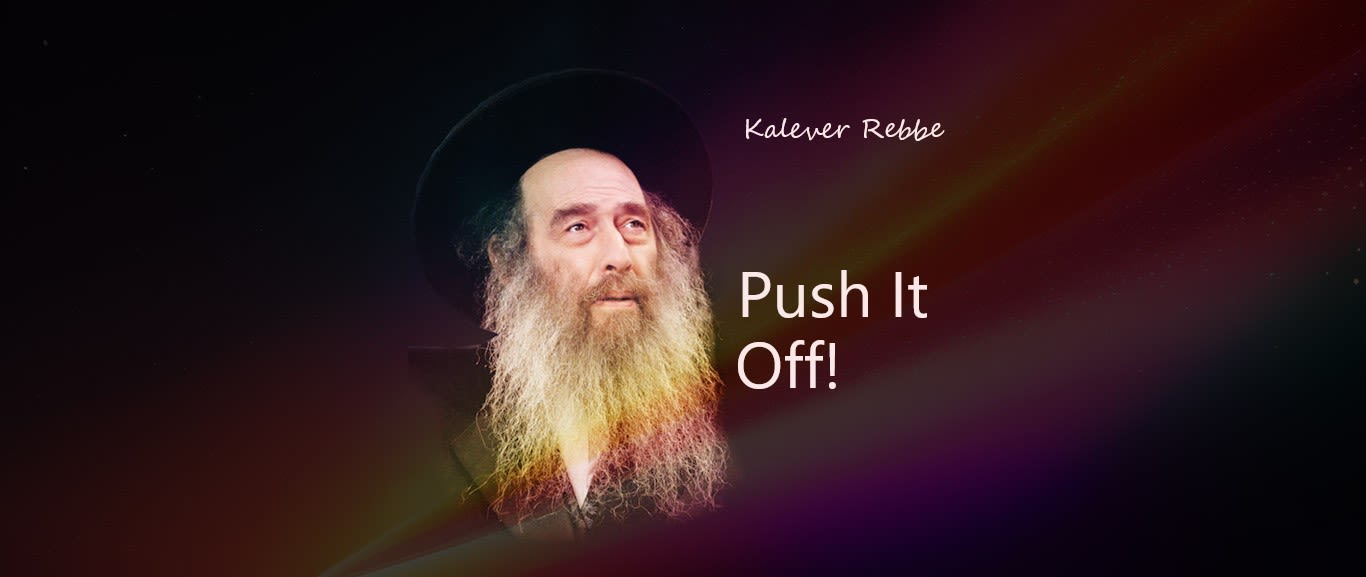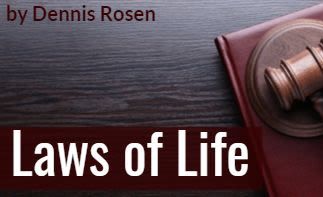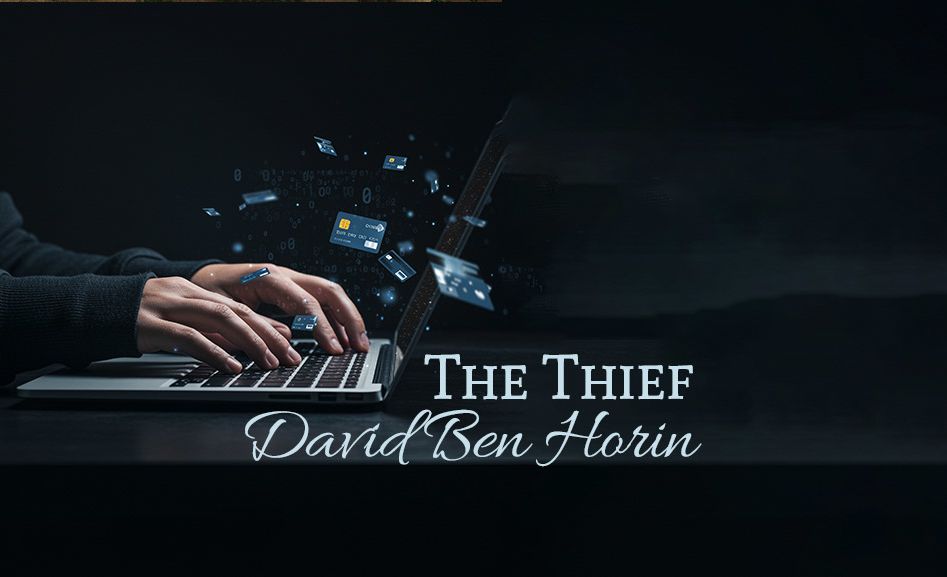
Push It Off!
How often have we reacted hastily, only to regret it later?! The Kalever Rebbe advises to wait an hour when temptations and emotions start to rise.

“For fire went forth from Cheshbon.” (Bamidbar 28:21)
Nothing Lost By Waiting
People would ask the Chozeh from Lublin, how he managed to refrain from ever getting upset or angry.
The Rebbe would reply, “I have trained myself, that whenever I felt like I was getting angry or upset, I would say to myself, ‘I am going to be angry, but not now. I will wait an hour.’ And, by the time that the hour had passed, my anger had subsided.”
Similarly, my holy ancestor R’ Yehuda Tzvi from Rozla would say, “Whenever I feel myself getting irritated by something, I would wait an hour. Nothing was ever lost by waiting.”
This advice applies not only to anger, but other wayward and destructive desires. If a person starts to feel a strong desire for something inappropriate, he should say to himself, “I want to indulge, but not now. Let me wait.”
This practice can help someone avoid the pitfalls of desire, because time will allow that fire of desire to extinguish.
Pickling Temptations
Pirkei Avos teaches (4:1), “Who is strong? One who overpowers his inclinations…”
R’ Shalom from Shatz explained that the word “כובש-overpowers” is related to the word “כבוש- pickled.”
The Shulchan Aruch rules (Yoreh Deah, 105:1) that if something forbidden remains with something kosher for 24 hours, it is “pickled” and that is akin to cooking. Therefore, the entire combination of food is forbidden and is not kosher.
So too, if you want to “overcome” your Yetzer Harah you need to say, “I will listen to you. But not now. I am going to wait 24 hours (like pickling). And, then, subsequently, you will be able to overcome that temptation.
See the Future
Even if time passes and that desire does not subside, you have the time to make a Cheshbon HaNefesh (self-evaluation), to reflect and weigh the pros and cons of indulging in that temptation.
Usually, when a person is honest and introspective, they will come to the realization that they should refrain from that temptation.
Chazal taught (Tamid 32a): “Who is the wise person? The one who sees the consequences”. My grandfather R’ Eliezer Tzvi from Kormano explained in Zekan Beiso on Pirkei Avos (2:1, the third explanation), that the Yetzer Harah succeeds with impulsiveness. It suddenly awakens a desire in your heart and it wants you to respond quickly. You get blindsided. The powerful desire is overwhelming at the moment. A person becomes like someone sitting in a room when the single light suddenly goes out and they cannot see anything. However, a wise person tells his Yetzer Harah, “I cannot make any decisions impulsively.” Once the person takes a moment to contemplate the challenge, when they are introspective, they can clearly see the consequences of their actions.
My grandfather’s mother told him that her father, R’ Avraham Mordechai from Pinchov, used to say: “foresight is never wasteful, and afterthought never helps”.
Therefore, R’ Chaim Vital wrote in Shaarei Kedushah (Volume I, Shaar 6), that a way to protect yourself from all spiritual ailments, is to focus on not harming your soul with a thought, speech or action no matter how trivial it might seem, until you had the time to contemplate the consequences of those behaviors. For, “urgency only leads to regret and there is no remedy for that.”
Therefore, the Yetzer Harah tries to push a person to hastily fulfill their desires. It knows that if you take a moment to reflect, then it is inevitable that you will realize that succumbing to temptation is not worth the consequences. You will realize that a temporary pleasure is not worth losing your place in this world and the World to Come.
A person must withstand temptation and take the time to reflect, to weigh the outcomes and make a proper Cheshbon HaNefesh. If you act impulsively, then you will certainly feel the regret that follows every transgression. As the Chazal taught: “the sinners are full of regret”.
Look to Your Past to Protect Your Future
The pasuk says in Tehillim (37:10), “A short while longer and the wicked man is not here, and you shall look at his place and he is not there”…
The Rizhiner Rav explained that if you wait a “short while longer”, then “the wicked man is not there.” You will no longer want to indulge in wicked temptations. Therefore, you should “look at his place”, consider the sin and the temptation and you will inevitably realize that you should not yield, you will overcome the temptation, and that sin will not be “there” any longer.
The pasuk in Mishlei (26:5) says, “Answer a fool according to his folly”. In his introduction, the Chasan Sofer explained, that you can answer the fool with his own folly. You can recall the times in your childhood when you chased empty and foolish pursuits and the shame you felt when you were older and knew better. This helps remind a person that eventually he will regret the temptations he indulges in now. To avoid this regret and shame, a person will remain on the just path, and empower him to overcome the temptations of any desire.
Now we can understand the pasuk above.
When a person feels the fire of desire starting to flare up, when there is a “fire”, you need to send it “forth”, you need to remove that temptation. How can a person successfully overcome temptation and desire? As the pasuk continues you need to wait to make a “Cheshbon”, a calculation, and weigh the tremendous rewards from refraining against the pain and regret that will follow that transgression.
***
The Kalever Rebbe is the seventh Rebbe of the Kaalov Chasidic dynasty, begun by his ancestor who was born to his previously childless parents after receiving a blessing from the Baal Shem Tov zy”a, and later learned under the Maggid of Mezeritch zt”l. The Rebbe has been involved in outreach for more than 30 years and writes weekly emails on understanding current issues through the Torah. Sign up at www.kaalov.org.












Tell us what you think!
Thank you for your comment!
It will be published after approval by the Editor.